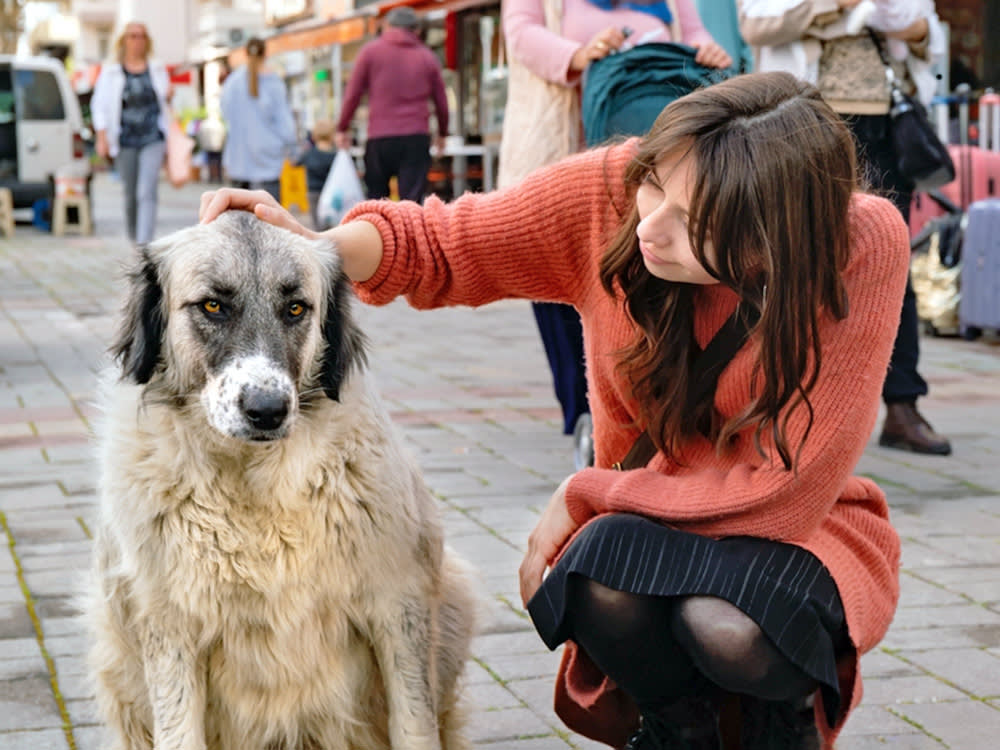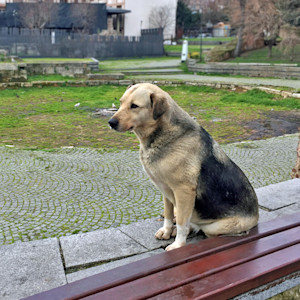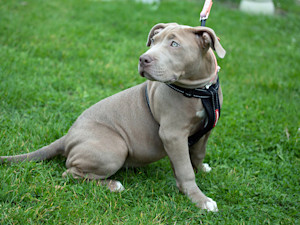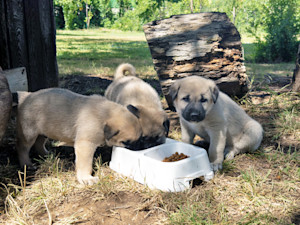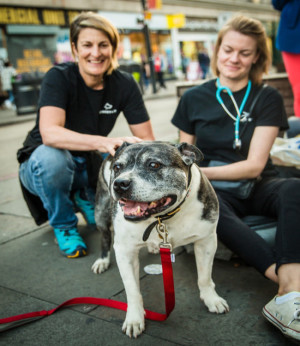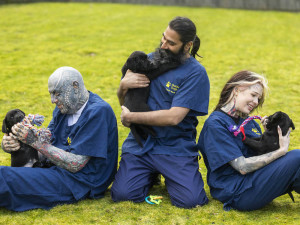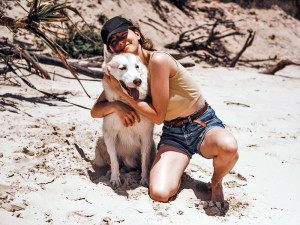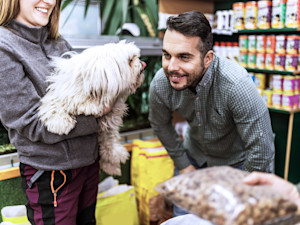Adoption Requests In Turkey Rise After ‘Massacre’ Law, But Is it Enough to Help?
Activists from Turkish rescue centres tell us how you can support them in their most desperate hour
At the end of July, legislation aimed at removing millions of stray dogs from the streets of Turkey was cemented into law. It requires municipalities to collect stray dogs and house them in shelters to be vaccinated, neutered and spayed before making them available for adoption. Any dog that is pain, terminally ill or poses a threat to humans is to be euthanised.
However, concerned activists and owners of private dog shelters in Turkey feared the law would turn into an excuse for widespread culling of stray dogs by shelters and blatant abuse of stray dogs on the country’s streets.
Get (totally free) deals for food, treats, accessories, tech and way more pet parenting must-haves.
Their worst fears have become realities since the passing of the legislation.
“We used to support the feeding of 30 to 40 street dogs,” says Clare Maddock, of the animal rescue service Forgotten Dogs of Turkeyopens in new tab. “Since the law passed, all of the street dogs have been removed.”
Maddock is based in Nottingham, but set up a dog shelter in Niğde in the Central Anatolia region of Turkey four years ago to both feed street dogs in the town and shelter and rehome those that were the most vulnerable and injured.
“We now feel we are in a battle against time when someone notifies us that a dog has been found on the streets,” she says. “We need to find a space for it before the municipality finds it and takes it to the government-run shelter.”
The pressure to house dogs before “dog catchers” get to them has increased since the law, but her shelter is nearly always completely full.
“We are squeezing in dogs,” she says. “We are getting a lot of female dogs now – I think it’s because people cannot afford the neuter costs... We are also getting more dogs that are small breeds now. I think these dogs were owned but now dumped because it is now mandatory to chip a dog, which costs money, and any chipped dog found on the streets will be returned to the owner and the owner fined. So the dog is dumped.”
Nilgül Sayar, founder of Göktürk Animal Lovers Associationopens in new tab also notes the increase in dogs since the law.
“Our population was 365 dogs before the law,” he says. After the law, there were massacres in many parts of the country, and we carried out rescue operations from other provinces and districts. Around 60 dogs were added to our population.”
In Aydin, in the south-west of the country, Lisanne Hillen, who runs Melez Dog Rescueopens in new tab, says she gets at least a couple of messages every day reading along the lines of: “if you don’t save this dog, it will end up in a government shelter.”
She knows that if a dog ends up in a government shelter, it may never come out again.
“I have started going to the government shelter once every two weeks to take the most vulnerable dogs,” she says. “This has led to a huge increase in the number of dogs in my private shelter. But for these dogs, it is either almost certain death in the government shelter or life in my now very overcrowded sanctuary.”
Private shelters feel the strain of rescuing dogs, but have also felt support from people getting in touch about adoption.
“Adoption went up since the law,” says Sibel Akin, Founder of Pets in Turkeyopens in new tab, a Swiss-based organisation that runs a private shelter in Izmir, on the west coast. “We saw a big interest among Turkish people living abroad. They expressed their concerns and wanted to help in some way. It was really heartwarming to feel we weren’t alone in this battle – that there was some hope.”
Sayar, Maddock and Hillen all have also said an interest in adoptions have increased since the law.
Hillen has seen an increase in local adoptions, but said these turn out to be “very difficult”, and that many locally adopted dogs are returned or abandoned to the streets.
“Having dogs as house pets is still a relatively new concept in Turkey,” she says. “People are inexperienced and have unrealistic expectations of what it takes to be a responsible dog owner. Many want pedigree breeds because they think that those are bred to be compatible with life in a home, verses stray dogs who aren’t.”
Although interest from those outside of Turkey has also increased, the process of facilitating these adoptions is both complicated and expensive, and has the potential to be off-putting.
“For international adoptions, the major obstacle we face is that because Turkey isn't an EU country, the rules and regulations for a dog to get to the EU and UK from Turkey put us at a severe disadvantage,” Hillen says.
And for UK adoptions, the rules and transport are even more expensive than in the rest of Europe, thanks to Brexit.
In Maddock’s shelter, once a dog has been tested for Leishmaniasis(a potentially fatal disease which is transmitted by sandflies and can be contracted by humans), distemper and parvovirus, and neutered, they put a poster of the dog online to be rehomed. Once someone shows interest, Maddock’s team becomes available to answer any questions and provide assurances. After an application form is completed, a home check is carried out. If the prospective adopter is still interested, they put down a deposit of £200 which goes directly to the transport company.
“We then carry out a range of tests – heartworm, Lyme disease, Brucellosis, Brucella canis, and Ehrlichiosis,” Maddock says.
“We then start the dog passport so that the dog can arrive safely in the UK with the right documentation,” she continues. “The test results of the above tests are emailed to the prospective owner. Obviously, if any of our dogs are tested positive for any of the diseases named, we treat the dog in Turkey until better. We also book the transport company to move the dog.”
Once the dog is with its new owner in the UK, the shelter stays in touch every day for the first month so ensure everything is going well.
The complicated, long process to get a dog from Turkey to the UK requires a lot of money too – both from the adoptive owner and private shelter.
“The interest in rehoming a dog has certainly gone up, however people are not willing or able to pay the £550 that we ask as a min payment to get the dog to the UK,” she says. “It costs us approximately £2,000 to get one dog to the UK. Transport alone is £1,000 as we use a company that is reputable and licensed to operate in Turkey and in the UK.”
The Turkey to UK adoptive process has in many cases put British people off adopting from Turkey.
“For people living in the UK, adopting a dog from another country such as Spain or Romania is just much easier and cheaper,” says Hillen. “This puts Turkish dogs at a huge disadvantage.”
Sending dogs to the UK, other European countries, or even within Turkey isn’t just expensive for adoptive parents, but for private shelters organising the adoptions.
“There isn’t enough financial support,” says Sayar. “The donation made for adoption does not cover the cost we have already incurred.”
Maddock agrees. “All private shelters would say the same – we need more space, more kennels, and more helpers at our shelters.”
The shelter Maddock runs has a van “on its last legs”, a food bill of over £1,000 a month, and a small team struggling to keep up with the daily duties. Plus, inflation is Turkey has made everything more expensive, she says.
“Adoptions are increasing and that is fantastic,” she continues. “But it increases our financial difficulties.” To cope, shelters are practically begging for help.
“It has been a very stressful and busy summer for all the rescue workers, we are exhausted,” Akin says. “We need more adopters and fosterers so we can have more space to rescue. But we also need financial resources in order to survive.”
In addition to practical and financial resources, Hillen also urges the international community to put pressure on Turkish authorities regarding the new law.
“You can do this by writing to your local Turkish embassyopens in new tab or to the Turkish Ministry of Foreign Affairsopens in new tab,” she says. “At the moment, the Turkish government is waiting for the outrage to blow over, as it always does with all their controversial policies. We can’t let the outrage blow over if we want to protect Turkish dogs!”
To register your interest in adopting a Turkish dog from one of the incredible shelters in this story, or to donate to them directly, click the links below
